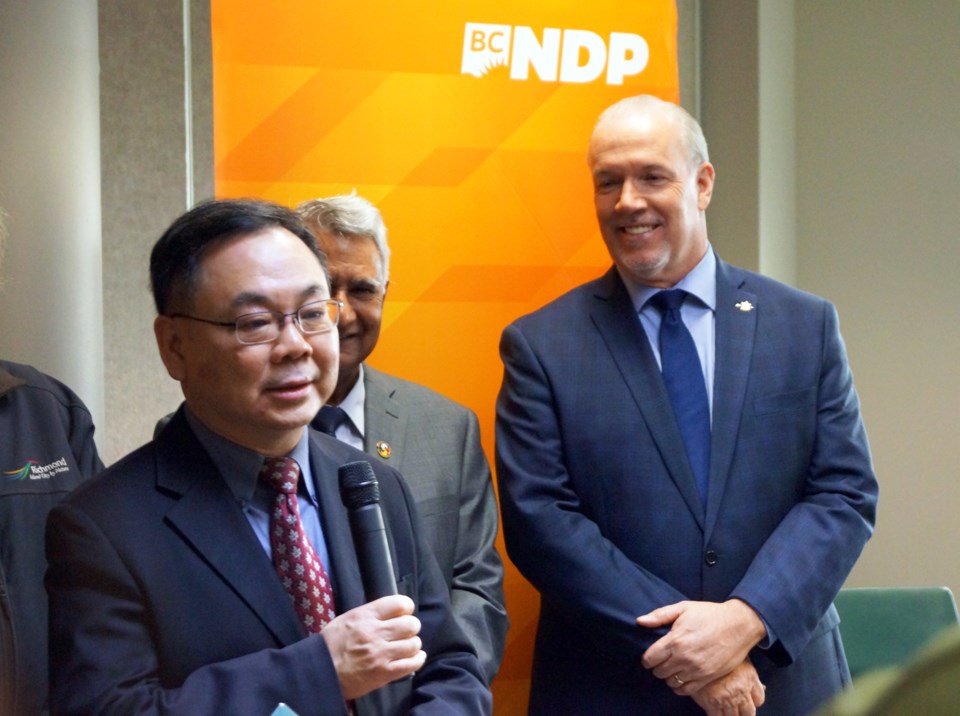Coun. Chak Au says he is “generally” pleased with the provincial NDP government’s new non-medical cannabis policies that will allow local politicians, such as himself, to push for strict municipal guidelines for retail pot shops.
“They are on the right track. I like their approach because they give direction to the local government,” said Au, a frontline leader of a community group of mostly Chinese Richmondites opposed to cannabis legalization.
Despite his vocal opposition to cannabis use, the former 2017 NDP MLA candidate for Richmond South Centre said he does not rule out allowing such retailers in Richmond.
This is because any city council “must consider” public opinion on a proposed retail location, according to the new B.C. Private Retail Licensing Guide.
“The city has to consider the public opinion of the community. So I won’t say that I will prohibit it right away. We have to go through the process, with public input — that is the key,” said Au.
When asked how he will balance the split in the community, Au said he’d take a “wait and see” approach. He speculated that some areas of Richmond would be more accepting of a retail shop than others.
Au describes the Chinese community as conservative on the matter. He too said a slow approach to licensing is best.
“If you go too far and fast, you cannot go back,” said Au, who has unanimous support on council to take such an approach.
Key among the concerns of Au’s activist group “2018 Marijuana Legalization Concern Group” is the belief that the federal legalization rollout hasn’t adequately addressed a number of concerns, such as youth access to drugs and impaired driving.
Regarding the former, Au said he expects council to adopt local guidelines that keep any cannabis shop away from schools, as it does with alcohol sales.
“I want stricter rules,” said Au.
Regarding the latter, on Monday, Mike Farnworth, Minister of Public Safety and Solicitor General, conceded more work will be needed even past the expected July 1 legalization date.
“We fully anticipate all levels of government will need to continue to assess and refine cannabis policy and regulation in the months and years to come,” said Farnworth.
B.C. will create a new 90-day administrative driving prohibition (ADP) for drug-affected driving, noted Farnworth. But there has yet to be an approved road-side drug test other than discretion of a trained police officer.
Farnworth announced other measures such as banning cannabis smoking in public spaces where tobacco smoke is prohibited.
“Smoking and vaping of non-medical cannabis will be banned in areas frequented by children, including community beaches, parks and playgrounds,” added the government in a news release.
Meanwhile, strata council rules will take precedence. For instance, no-smoking rules may apply and while one will be allowed to grow up to four cannabis plants legally, stratas could ban such a practice.
In B.C. possession of non-medical cannabis will be limited to 30 grams by those aged 19 or older.
The government will distribute cannabis like it does alcohol, via the B.C. Liquor Distribution Branch, which will also operate some retail stores, much like BC Liquor. Meanwhile, the Liquor Control and Licensing Branch (LCLB) will be responsible for licensing private stores.



